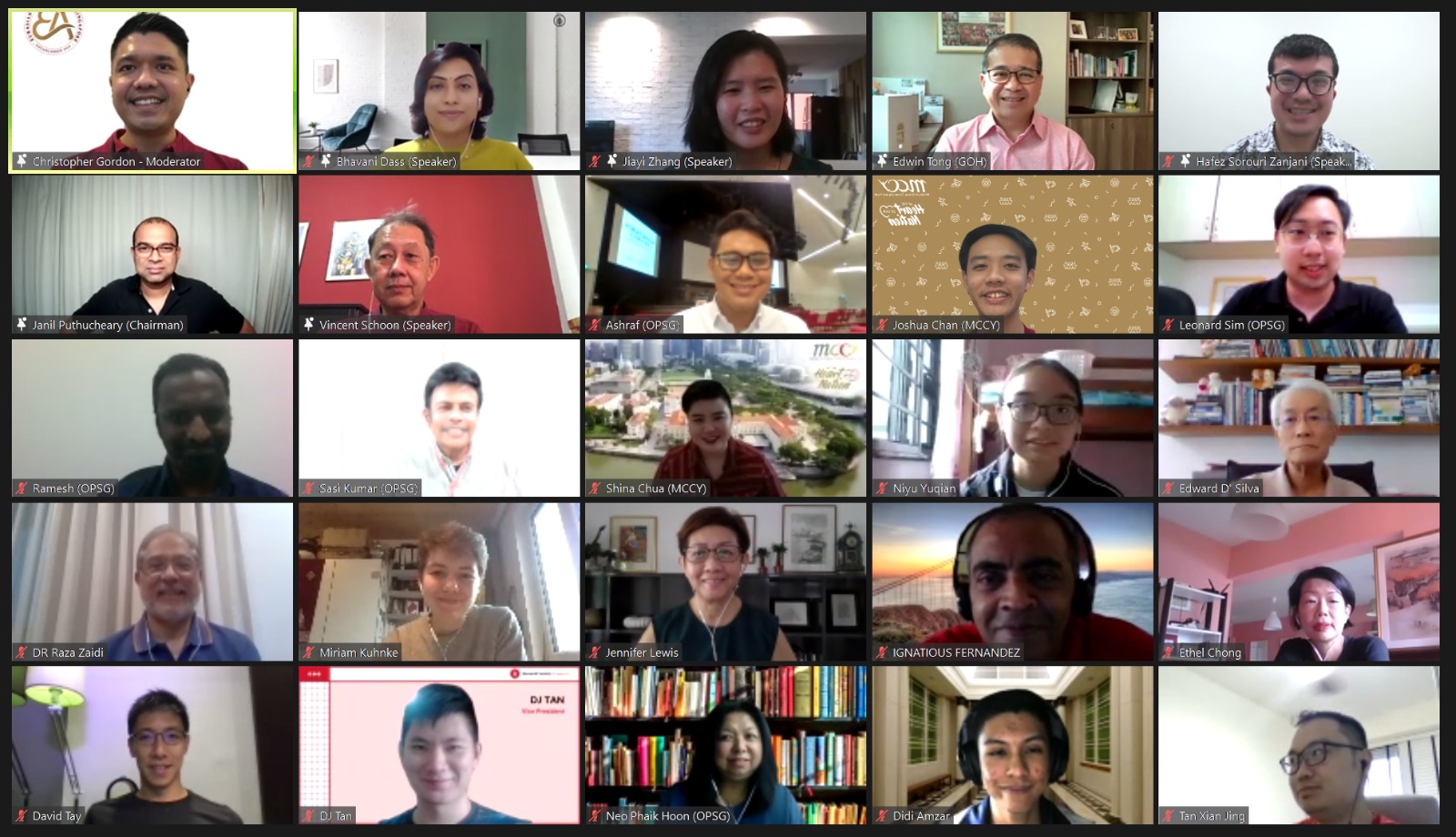Minister for Culture, Community and Youth (MCCY) Edwin Tong described Singapore's hawker culture, which was recently added to the UNESCO Representative List of the Intangible Cultural heritage of Humanity as a "true microcosm of Singapore".
"A diverse range of stalls with many offerings serving people from all walks of life, race, religion, and social status, notwithstanding, seated side-by-side, some even sharing tables," Tong described how it represented Singapore in a nutshell.
Speaking at the fifth installment of the Regardless of Race Dialogue, on the topic of generational differences shaping views on race in Singapore, Tong said that hawker culture is "the most physical, tangible, and daily representation of 'regardless of race, language or religion'".
In his keynote speech, Tong emphasised that racial harmony in Singapore is "a constant work in progress", and Singaporeans must never think that "we have arrived", as there is still "much that we can do".
Tong believed that the "regardless of race, language and religion" concept is a "societal aspiration" and "a constant reminder for each of us as Singaporeans" that racial harmony is "something unique to us".
He added that being race blind doesn't mean that Singaporeans "end up being blind to the diversity that we all bring to the table".

Around 110 participants took part in the virtual dialogue session on Dec. 19, organised by OnePeople.sg, the national body promoting racial harmony, the Eurasian Association, and supported by Mothership.sg.
Need to create safe spaces for discussion without fear of being "called out" or "cancelled"
Tong asked how Singapore could translate its multiracialism into a strength for society.
"How do we strengthen the diverse strengths which make up the (Singapore) tapestry, so that each strip is strong on his own each race, each religion, culture is strong on its own, but the overall tapestry that we, together, with all of these parts is not only stronger than the sum of its parts, but also beautifully enhanced by the tapestry?"
Tong added that the test of maturity, the strength and resilience of Singapore's racial harmony is measured by how the society responds to adversity.
"The more we're able to nurture discussions (and) constructive public discourse on race-related issues, the better it will be," he explained.
Elaborating further, he stressed the need to create safe spaces for people to discuss without being "called out" or "cancelled", referring to the rising phenomenon of "call out culture" or "cancel culture" gaining traction around the world.
"We do see such behaviour emerging in Singapore, and the intention, whilst not always clear, sometimes give rise to emotive, and sensitive responses, and that's something we must be very mindful of," Tong said.
He went on to explain that the boundaries of discussing race-related issues in Singapore has been constantly shifting, which may cause discomfort in parts of society, including the older generation.
With race as an emotive and sensitive issue, he said that Singapore "must chart a path forward, which has a common understanding in society as to what is acceptable and what is not acceptable".
Panellists shared about inter-generational differences from personal encounters
The dialogue session also included a panel comprising Vincent Schoon, vice-president of the Eurasian Association; Bhavani Dass, general manager of the Indian Heritage Centre; Zhang Jiayi, former Institute of Policy Studies researcher; and Hafez Sorouri Zanjani, a grassroots leader and youth advocate at OnePeople.sg.
Each panellist provided their thoughts from inter-generational perspectives, and shared their interpretation and attitude towards race in Singapore.
Bhavani and Schoon shared anecdotes of conversations with their children, on stark differences in views on race between themselves and their children.
Bhavani recalled an occasion where her family went for a meal in a Chinese restaurant, when the waiter provided them with forks and spoons instead of chopsticks, compared to other tables.
While her 18-year-old daughter thought it was racist of the waiter, Bhavani viewed it differently, explaining the difference in perspectives across generations.
Working together on race-related issues in a practical manner, in Singapore's context
On how Singaporeans can work together on race-related issues in a practical manner, Tong suggested that it could be useful for individuals and groups to reach out across racial lines and collaborate on projects.
Describing the Regardless of Race Dialogue as an example in reaching out across racial lines, he explained the need for individuals and organisations to work together across racial lines.
He reiterated that the government is "committed to nurturing strong partnerships in the community", citing a hackathon organised by MCCY recently, which invited youths to push ideas on how to strengthen social cohesion.
Stressing the need for collaboration across racial lines and as a society, Tong said that there is "no one segment in society...that has a monopoly of good ideas".
Totally unrelated but follow and listen to our podcast here
Top image via Public Service Division Singapore
If you like what you read, follow us on Facebook, Instagram, Twitter and Telegram to get the latest updates.
